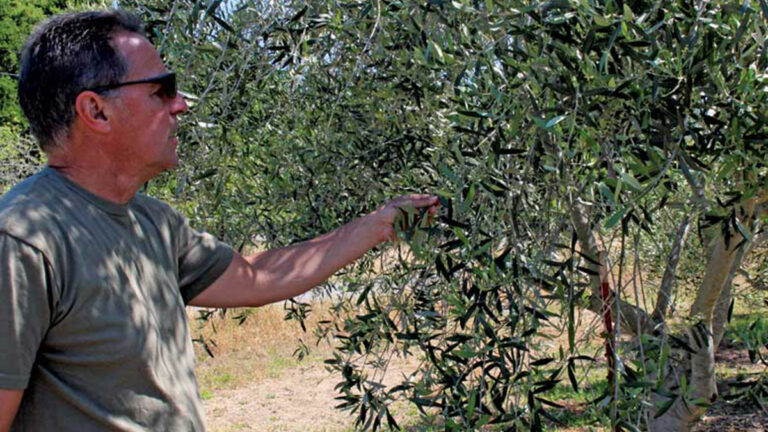As Californians prepare to return to a sense of economic pre-Covid-19 normalcy on June 15, the pandemic has yet to loosen its tight grip on the hard-hit service industry.
After many in the restaurant, hospitality and entertainment industries had to close their doors and lay off thousands of workers, those same employers are now struggling to bring those employees back and hire new ones. Santa Cruz County is not immune to the issue.
“Oh yeah, it’s definitely been challenging to find new, qualified people,” says Taylor Fontana, who since 2016 has owned the long-standing Scotts Valley eatery and pub, Malone’s Grille.
Prior to the pandemic, Fontana, a Scotts Valley native who grew up working in the restaurant business, estimates Malone’s employed 37 people. Now, they are operating with a skeleton staff of 10, including Fontana and his general manager—and fiance—Jennee Gregg. While he used to work exclusively at the front-of-house, greeting guests and making everything run smoothly, Fontana can now be found in the kitchen cooking three days out of the week along with bartending.
“I’ve never seen it this way before,” he says.
Like Malone’s, downtown Santa Cruz restaurant Chocolate has seen a drastic loss of staff, going from 22 employees before the pandemic to only seven now.
Because of the shortage, both establishments have cut back their hours, with Malone’s changing their model from table service to fast-casual: guests order at a counter and take a number to an open seat, a style that’s been adopted throughout the industry as of late.
“I’m so surprised we have such limited resources when it comes to servers,” says David Jackman, owner and operator of Chocolate for the past 21 years. “It’s unheard of.”
Jackman remembers when “Craigslist postings used to be a gold mine,” and they’d receive at least one application an hour for any given open position.
“Now we’ve posted an application for a server, and we got one unqualified applicant,” he says.
He emphasizes that “unqualified” doesn’t mean someone without experience, but someone lacking the characteristics they’re looking for to match the Chocolate ambience. In fact, when they have hired new employees Jackman believes they are of a different caliber than 15 or 20 years ago.
“They’re just spread so thin right now, and we don’t know why,” he says.
Increased demand
Even high-end establishments and resorts—traditionally well employed because workers can make larger tips—are scrambling for labor.
Connie Hagston, director of sales and marketing at the Chaminade Resort and Spa in the Santa Cruz Mountains, says the destination location is currently hiring across the board. Despite reopening on June 5, 2020, the labor drought has only hit them recently. However, it’s also paired with an influx of guests eager to get back into the world after months of isolation.
“We’re already exceeding previous years,” says Hagston. “Really we started the year exceeding previous years.”
It’s a sentiment shared by Sabra Reyes, director of human resources at the Santa Cruz Beach Boardwalk, where they are trying to currently fill “at least 500 positions.” With everyone under lockdown for most of last year, they are also already seeing higher than average guest volumes. That means they need more staff to operate rides, serve the much-loved carnival food, and keep things Covid-compliant with sanitization.
“The demand is greater than what we can offer right now,” she says. “Part of that is limited capacity and making sure people are social distancing, but we do not have enough staff to provide for the demand that’s here.”
Limited staff and high demand don’t always make for happy customers, but local restaurants are doing what they can to provide the best service possible.
For Jackman, even with having a barebones workforce he doesn’t believe Chocolate’s integrity should ever be compromised, and patrons shouldn’t know the struggles of a restaurant.
“They can’t know,” he says. “Your audience isn’t coming to know the problems behind the curtain. They’re coming to have an excellent experience.”
Much like their new floor plan and fast casual model, Malone’s takes a more open approach.
“One thing we’re adamant about is expressing this to our customers,” Fontana says. “Reminding them everyone is doing the best they can but people can only push themselves so much. We’re all human.”
He underlines that it’s a reminder he doesn’t have to give often, with an understanding and loyal customer base returning to Malone’s. Still, he says there have been a few guests who are less than reasonable, whether they are upset about the changes to fast-casual dining, limited menus or the added gratuity for takeout orders because people had stopped tipping when picking up food.
“Most people were understanding of it,” he says. “But we definitely caught our fair share of heat as well.”
Affordability
Critics believe the most obvious answer for the shortage is the service industry’s lack of a living wage. They argue that if people make more on unemployment checks boosted by federal stimulus money, why would they want to go back to a minimum wage job?
Yet, both Malone’s and Chocolate say they are offering higher than minimum wages for back-of-house—or kitchen—staff. Fontana tells GT he’s currently offering $17 to $20 per hour, while Jackman says Chocolate is offering $16.50 to $19. Both businesses hire serving staff at current minimum wage levels ($14), but say servers also make tips which can add up to an average of $30 per hour on a good shift.
“I understood why some said they weren’t coming back. You’ve got to do what you’ve got to do,” Fontana says. “But it leaves businesses like us in a tough position.”
But those hourly rates in California don’t go as far as they would in other states, especially in the Bay Area. Inflation, cost of living and rent are also all key factors in the current labor shortage, says Rita Imerson, a consultant with Synergy Restaurant Consultants for the last four years. According to Zillow.com, the Santa Cruz housing market has gone up by 14.5% since March 2020, with studio apartments in the city averaging around $2,000 a month to rent.
Imerson, who before joining Synergy worked for years at the Boulder Creek Country Club and was the General Manager at the Capitola Marie Calendar’s prior to its closing, says the labor crisis is indeed a nationwide issue, but adds that California’s affordability crisis has compounded the problem.
“Here in California, I think the pay rate that people need to live here hasn’t caught up with what restaurants are able to pay,” she says.
Synergy works with more than 250 national and international restaurants on every aspect of their business, from menus and operations to financial performance. Along with offering higher wages, Imerson says the second answer she receives from the workforce on what it will take to bring them back into the restaurant industry are more benefits, like health care.
However, she doesn’t attribute the labor shortage entirely to last year, saying it was a growing trend even before 2020. One of the main contributors she sees is the growing gig economy—businesses like Uber Eats or DoorDash where employees can work at their own leisure—attracting people out from the service industry.
“A lot of people in the restaurant industry like it because it’s a flexible situation,” she explains, admitting the pandemic did exacerbate the situation, especially when dine-in options weren’t available.
“Now I see comments all the time in Facebook groups for the restaurant industry saying they’re just going to keep doing DoorDash,” she says.
Hagston also believes it’s a major contributing factor to Chaminade’s shortage.
“A lot of associates who were furloughed last year have moved on to other industries,” she says.
Where’s the workforce?
The obvious byproduct of unaffordability is the loss of eligible people entering the workforce. Businesses can’t hire people who aren’t there.
It’s a familiar story to Anjika Grinager. Born and raised in Santa Cruz, along with raising her two adult children in the area all while working at the Boulder Creek Brewery, she says she was priced out of the area in 2018.
“Santa Cruz is nuts,” she says. “You can’t constantly have an underpaid workforce and exorbitant housing costs. It’s unsustainable.”
After moving to Portland, Grinager continued to work in the service industry until the pandemic, when she became one of the many to leave the industry entirely to take up working from home as a web designer. She says she understands why so many aren’t returning to waiting tables.
“I think people got a taste of what life is like when you’re not scraping by,” she says.
Another factor in the labor shortage is the type of job and workforce it normally attracts.
Reyes says hiring during this time of year is normally tough for the Boardwalk, as much of their seasonal workforce consists of high school students who are either finishing their finals or want a break between school and work to enjoy with their friends.
Jackman believes the lack of returning UCSC students is another factor. He says they have traditionally been a large part of Chocolate’s—and the greater, countywide service industry’s—workforce.
“We can also add unvaccinated young people reluctant to come in contact with the public, that’s big,” he adds. Jackman says he is hopeful the workforce will return in September with more UCSC students potentially coming back to school.
According to California’s Employment Development Department, those hopes are based on real data. While the state is still up in unemployment from the same time last year, it has seen an increase of labor in the job market from February to March of this year. California’s unemployment rate dropped 0.2% in March, with an increase in 42,400 jobs in the leisure and hospitality industry.
Incentives
Several states have started to get creative to solve their respective labor shortages.
In Montana, Gov. Greg Gianforte announced a return-to-work bonus program earlier this month in which people who were receiving unemployment benefits would land a $1,200 check if they were hired and kept the job for at least a month.
“Incentives matter,” Gianforte said.
Last month, U.S. Senate Finance Committee Ranking Member Mike Crapo and Sen. Jim Risch—both from Idaho—introduced the “Back to Work Bonus Act.” If approved, the legislation would provide returning workers with a one-time $1,200 (full-time) or $600 (part-time) check and would reinstate job search requirements for unemployment beneficiaries, something Congress waived last March in the wake of the pandemic. The bill follows similar legislation introduced in the senators’ home state, which encouraged over 10,000 Idahoans to find employment in one day. Identical legislation was also introduced in the House.
The Boardwalk at the beginning of May announced its new summer seasonal bonuses program to not only attract new applicants, but encourage current staff to work more during the week. If someone works an average of 30 hours a week—or 60 hours within a two-week pay period—they’ll get an extra $300, Reyes says.
“So if you work 30 hours a week over the span of the summer you could earn an additional $2,700,” she explains.
It’s this sort of divergent thinking that Imerson says the restaurant industry must adopt in order to stay afloat in the evolving economy.
“I say time and time again to make sure your job ad doesn’t look like every other one out there,” she says. “Offer unique things like a weekend off every six weeks or a steady schedule. Also, are there any other perks like free meals? Is your restaurant closed on major holidays?”
Even with creative hiring practices, many local businesses are worried it won’t be enough to meet the upcoming tourist season demands. That’s because ultimately, Hagston says, they all have one thing in common.
“We’re all looking for the same people,” she says.



























